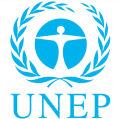Project Database
The Poverty-Environment Initiative (PEI) is a global programme that supports country-led efforts to mainstream poverty-environment linkages into national development and sub-national development planning, from policy-making to budgeting, implementation and monitoring. With both financial and technical support, PEI assists government decision-makers and a wide-range of other stakeholders to manage the environment...

Amongst others, the main achievements of the project: Policy, Macro-economic Assessments and Instruments to Empower Governments and Business to Advance Resource Efficiency and Move Towards a Green Economy include:
1) Global analysis using system dynamic modelling and sectorial analysis providing the economic case for investing in the sectors of agriculture...

The Green Economy Joint Programme is a collaboration between the United Nations Development Programme (UNDP), United Nations Environment Programme (UNEP) and United Nations Department of Economic and Social Affairs (UNDESA) to support governments and stakeholders in their post-Rio+20 efforts to green economies through more integrated development approaches that help ensure...


This project aims at raising the levels of social development, and economic growth in Bangladesh, by increasing access to electricity in rural areas, where most of the country's poor population live. The key components will support: 1) rural electrification systems expansion, intensification, and rehabilitation, through the construction of new power...

The objective of the Chittagong Water Supply Improvement and Sanitation Project for Bangladesh is to increase the sustainable access to safe water and improved sanitation, as well as support the establishment of a long term water supply, sanitation and drainage infrastructure development and operational management program in Chittagong. There are...

The objective of the project is to support Bangladesh's efforts to raise levels of social development and economic growth by increasing access to electricity in remote rural areas and to reduce atmospheric carbon emissions by overcoming market barriers for renewable energy development.

The objective of this project for the large scale deployment of Compact fluorescent lamps (CFLs) is to support Bangladesh’s efforts to raise levels of social development and economic growth by increasing access to electricity, particularly in rural areas where both access and availability is low. This will be achieved by...

In support of the vision of the Government of Bangladesh (GOB) of providing universal access to electricity by the year 2020, this project aims to support the Solar Home Systems (SHS) and mini-grid options for providing access to electricity in areas where grid electricity is difficult, expensive, and will take...

This carbon offset project consists of the purchase of ERs generated from installation of up to 1,000,000 solar homes systems by Grameen Shakti, the project proponent, to rural users in Bangladesh. The costs of the Solar Home Systems (SHS) can be paid on a cash basis, or can be purchased...
